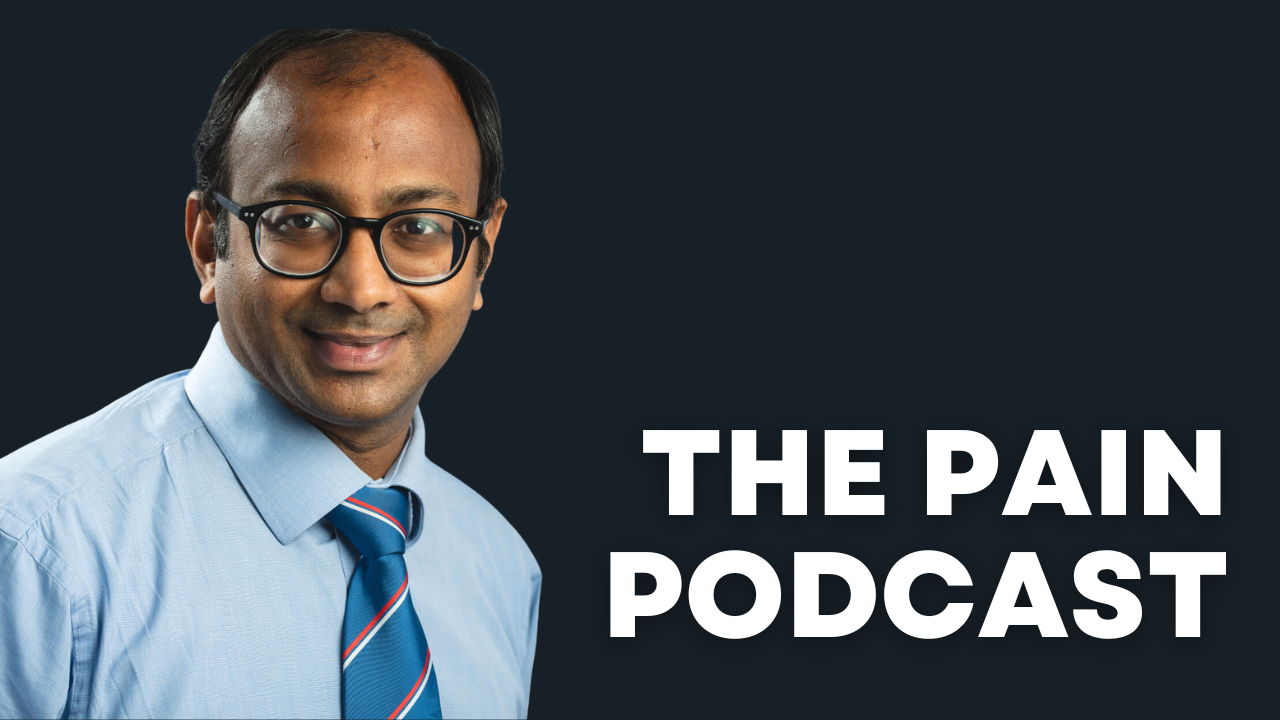Tim: Welcome to the Pain Podcast. I'm Tim Beames, founder of Le Pub Scientifique. Today, we're continuing our discussion with Dr. Deepak Ravindran, who has a broad interest in trauma-informed care, lifestyle medicine, and more. Deepak, you seem to approach pain medicine differently from the norm. Can you tell us about that?
Deepak: Thank you, Tim. My approach has been modified by my business management course at Henley School. It got me thinking about what patients really need. I love pain medicine, but I realized that the outcomes I was achieving weren't matching my expectations. There was a gap in raising awareness and bringing about change in perception and management of pain.
Tim: How do you see yourself in relation to your peers in pain medicine?
Deepak: I see myself as bridging a gap. Imagine two cliffs: on one side is the biomedical model, and on the other is the neuroscience, mind-body approach. Patients need to cross from one side to the other, and I position myself as a guide at that bridge entry point.
Tim: That's an interesting analogy. Do you encounter resistance to this approach?
Deepak: It's less now. I've reframed each consultation as an opportunity for micro-change. I try to sense where the patient is at and establish rapport. I use the concept of the "7-11" - people need about 7 hours of content exposure and 11 touch points before they can attempt any change.
Tim: You've mentioned several themes. Let's focus on behavior change. How can you be part of a longer-term behavioral change for someone with persistent pain?
Deepak: It's about creating an ecosystem where change is possible. That's what's driven my actions in social media, books, and collaborations. We need to facilitate change rather than expect it. I'm influenced by Dave Snowden's Cynefin framework, which helps in decision-making in complex systems.
Tim: Can you elaborate on how this applies to pain management?
Deepak: In pain management, we're often dealing with a complex adaptive system. We can influence the vector of travel but can't set specific goals. It's about creating an ecosystem where the energy gradient for positive change is as low as possible.
Tim: That's fascinating. Let's talk about nutrition. Where do you see it fitting into pain management?
Deepak: Nutrition is tangible and something patients do every day. It's an easy entry point. Most chronic pain patients have comorbidities, so there's already a theme in primary care around healthy eating. We can leverage this to help patients understand the connection between nutrition and pain, particularly through its influence on the immune system and microbiome.
Tim: That's a great perspective. It seems like there are simple opportunities for behavioral change that could have real benefits.
Deepak: Exactly. And it takes the pressure off me as a clinician. I don't have to be the fixer; I'm a facilitator, a guide. I'm there to give options and be with the patient on their journey.
Tim: Unfortunately, we're out of time. It's been great to hear your perspective and how it's evolved over the years. Thank you for joining us, Deepak.
Deepak: Thank you, Tim. It's been a pleasure. And just to add, my experience with long COVID has made me aware that there might still be clear biomedical opportunities. We're learning so much about mitochondrial changes in conditions like fibromyalgia and chronic fatigue. It doesn't change the need for a bigger level of support, but it's an interesting development.
Tim: Absolutely. Thanks again, and all the best.

